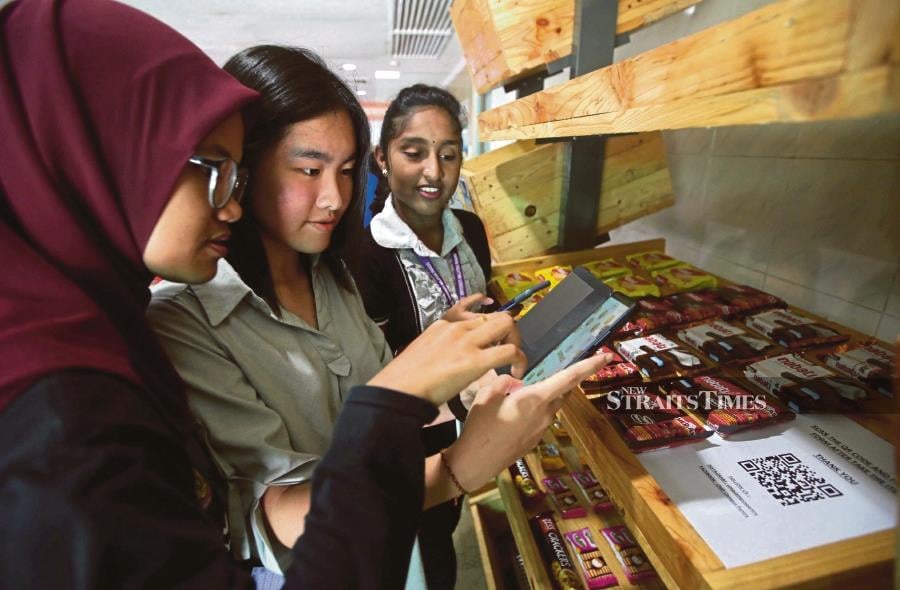
A recent news article citing a list of programmes to be dropped at public universities has raised concern among many quarters.
Students currently pursuing courses involved and their parents were particularly anxious about the status of the said programmes that will no longer be offered by public universities in the country.
Higher Education director-general Datin Paduka Dr Siti Hamisah Tapsir was quoted as saying that the department has asked all universities to identify and reshape their academic programmes to enhance students’ job opportunities and be in line with industry needs.
The idea behind the move is essentially to revise strategically and systematically what are currently offered at universities to keep abreast with change and market developments or risk stagnation.
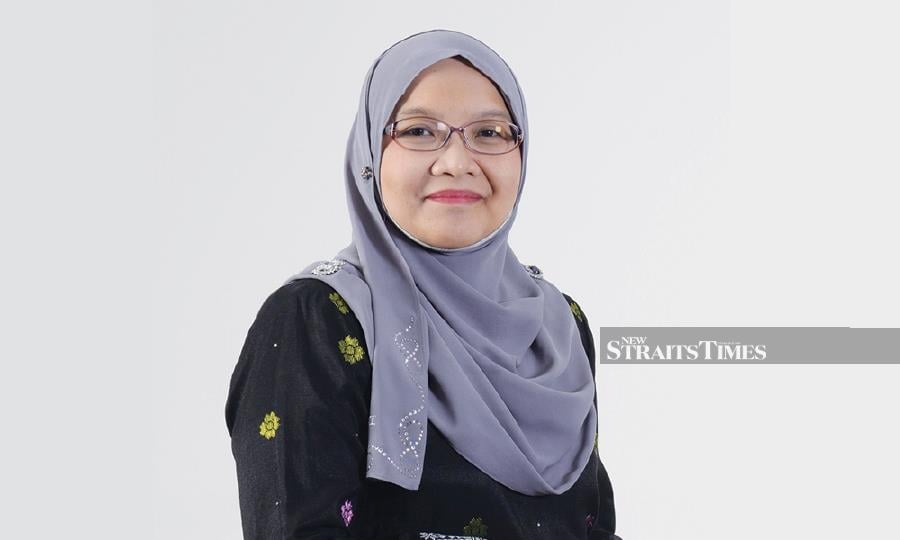
Malaysian Institute of Accountants (MIA) chief executive officer Dr Nurmazilah Mahzan.
As one of the industry voices — Malaysian Institute of Accountants (MIA) chief executive officer Dr Nurmazilah Mahzan ― puts it: “If universities offer courses that are not in demand by industry, there will be a mismatch between demand and supply of labour; this in turn could affect graduate employability and, ultimately, overall economic and social sustainability and wellbeing.”
She said courses offered at universities should be periodically reviewed, revised or improved where possible to produce marketable graduates who can contribute to business, economic and social development.
So how are public universities reacting to this directive and how are they going about the selection process?
CONTINUOUS EXERCISE
Curriculum review and reassessing of programme offerings are the norm among public universities, said spokespersons approached by Higher ED.
Universiti Malaysia Kelantan (UMK) vice-chancellor Professor Dr Noor Azizi Ismail pointed out that the process started in 2017 when a team of professors were assigned to study the relevancy of programmes offered by local higher education institutions (HEIs).
“At universities, we have a Board of Studies which sits down before any programmes are offered and we are required to review all programmes every three to five years. But now because things change so fast, I would recommend a review be done every three years,” he said.
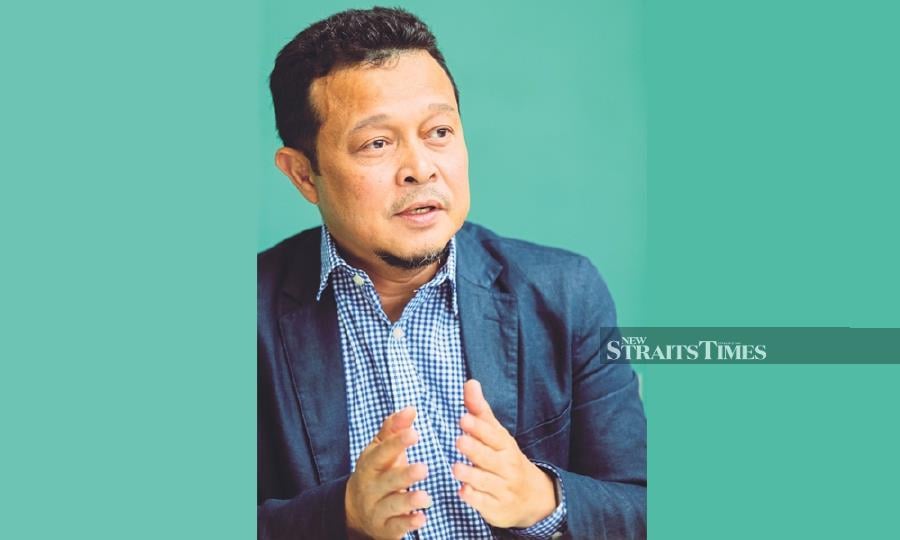
Universiti Malaysia Kelantan (UMK) vice-chancellor Professor Dr Noor Azizi Ismail.
At UMK, Noor Azizi said the engagement and involvement of the industry in the development and updating of programmes is key, apart from data from various analyses.
All decisions have to go through the Senate, Board of Directors, the Malaysia Qualification Agencies (MQA), Industry Advisory Panels (IAP) and the Education Ministry.
“Relevance in the context of past, current and future scenario, particularly in the context of IR4.0, are looked at. Data such as demand for the programmes, graduate employability (GE), future demands, national interest and so forth, as well as input from various agencies/industries are also taken into consideration,” he said.
As a result of the discussions carried out by UMK, for example, low value programmes that are important for nation-building such as history and heritage were suggested to be combined with other programmes such as history with law, and heritage with information technology (IT).
“Programmes with low GE such as very specialised science programmes like maths can be combined with economics and physics with computer science to make them more applied and relevant.
“Even Islamic programmes are embedded with science and technology such as biotech to make graduates ready for the halal industry. Based on the findings, we are taking the necessary action,” he said.
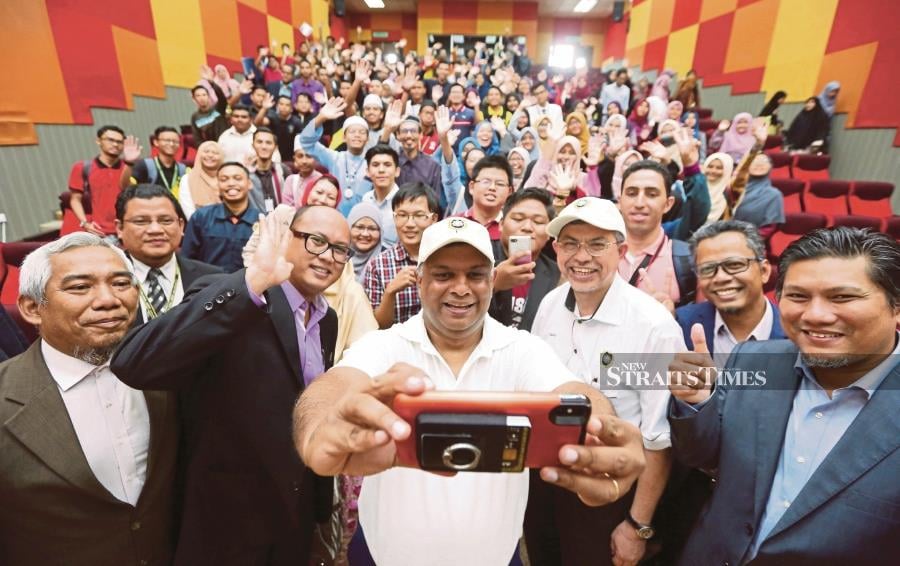
Engagement with industry leaders is crucial for the development of university programmes. Seen here is Tony Fernandes, chief executive officer of Air Asia Group at an executive talk held in Universiti Sultan Zainal Abidin. – NSTP/Ghazali Kori
Universiti Malaysia Terengganu (UMT) deputy vice-chancellor (Academic & International) Professor Dr Noor Azuan Abu Osman said when any curriculum review is done, apart from benchmarking with similar top programmes, market survey, report from industry as external reviewer, needs of stakeholders and the current requirements in the related field are the compulsory parameters set by the Department of Higher Education (JPT).
“From the analyses, we will decide either to change the programme to industry mode as regulated by JPT, to fully overhaul the curriculum, or to hold its offer for the next intake of students. The decision is made by the Senate of UMT, upon thorough evaluation by MQA before it is endorsed by JPT,” he said.
Universiti Teknologi Mara (UiTM), meanwhile, stated that it takes a number of factors into consideration in addressing or identifying whether a course (or a set of courses) is irrelevant to current industry needs.
“The decision to cease the offering of a programme is not taken lightly and various factors are considered. One example of this exercise is with the development of the Academic Program Competitive Index (IDSPA), a mechanism to measure the relevance and sustainability of an academic programme,” said UiTM deputy vice-chancellor (Academic and International) Professor Dr Mohamad Kamal Harun.
Among the parameters measured by IDSPA are graduate employability, the popularity of the programmes, student enrolment, trends and needs of the programme(s) and the demand of the programmes based on data of the national and global workforce.
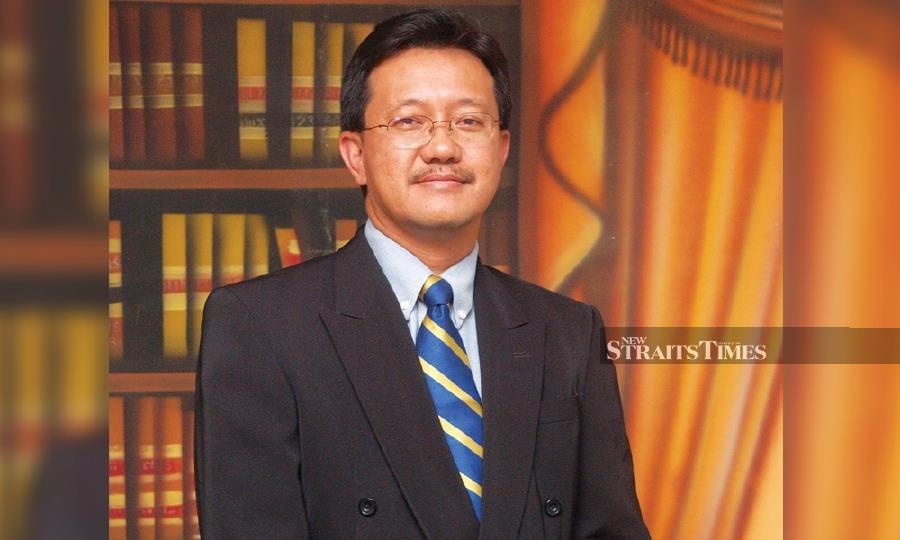
UiTM deputy vice-chancellor (Academic and International) Professor Dr Mohamad Kamal Harun.
Mohamad Kamal said the index indicates the possibility of whether a programme needs to be rebranded or cease to be offered. The justification for a programme to be deemed irrelevant is carefully negotiated and reviewed.
The deleted programmes at UiTM may be rebranded, replaced or combined with new relevant programmes, said Mohamad Kamal.
“The need to enhance the programmes is a priority in ensuring that the programme and its graduates remain relevant to the industry and society. The university is also moving towards the re-designing of academic programmes by creating programmes that are transdisciplinary or hybrid in nature. This is a strategy that is most relevant to current industrial trends and global needs.
Meanwhile, Universiti Putra Malaysia (UPM) deputy vice-chancellor (Academic and International) Professor Dr M. Iqbal Saripan said that having a couple of programmes dropped from a university is not “a big thing”.
“Universities, especially public universities, must be dynamic and we are responding to the needs of the industry and global shift. The decision to drop any programme is based on the study of the current market needs and indicators such as the popularity of the programmes and the graduate employability, as well as the sustainability of the programmes,” he said.
In the case of UPM dropping two programmes ― Bachelor of Education (Primary School Education and Master in Water Management ― the decision was made last year due to the low number of enrolment for Primary School Education studies. There are no students currently enrolled.
For water management, the decision is to phase it out totally.
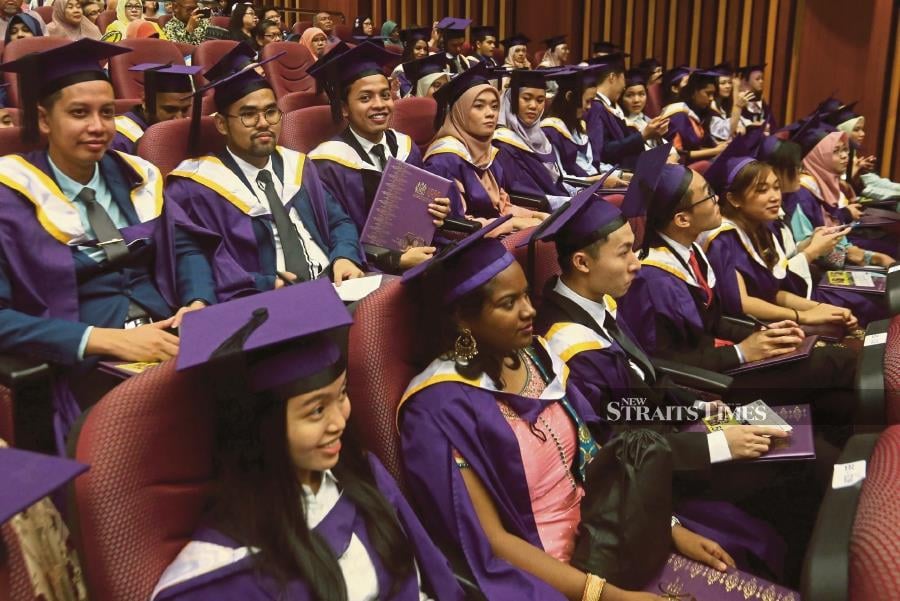
The right programmes need to be offered to ensure graduate employability. -NSTP/Danial Saad
“The bachelor’s degree was a one-off programme and not sustainable to keep. We offer the Master of Water Engineering to cater to students interested to study water-related courses,” he said.
He assured that students currently enrolled in programmes that are being phased out will not have their qualifications affected as the qualifications are accredited by MQA.
“The degree will still be recognised,” he said.
The same goes for students of Universiti Malaysia Perlis (UniMAP), as in other public universities, said its vice-chancellor Professor Dr R. Badlishah Ahmad.
“The decision to drop a programme is not an easy one. Once a programme is dropped, current students still have to complete the whole programme and will graduate. The university will not force students to change their programmes,” he said.
IN THE PIPELINE
According to Universiti Malaya (UM) deputy vice-chancellor (Academic and International) Professor Dr Kamila Ghazali, rather than discussing which programmes will cease to be offered, it would be more productive to talk about the effective new programmes in the revamp.
“We are currently in the process of ensuring that every UM graduate will be technologically-savvy and equipped with various life skills from personal financial literacy to analytics and even artificial intelligence. We call this new initiative Student Holistic Empowerment.
“In this initiative, students will choose courses, as part of their electives, from four subject clusters ― Thinking Matters: Mind & Intellect; Emotional, Physical and Spiritual Intelligence: Heart, Body & Soul; Technology/Artificial Intelligence and Data Analytics: i-Techie; and Global Issues and Community Sustainability: Making the World a Better Place.
“This change is timely and will ensure that every graduate of UM is the best that any employer can find. This is our responsibility to our students,” she said.
She emphasised that the Student Holistic Empowerment subject clusters offered with every undergraduate programme will make every programme offered starting in 2020 essentially a new and improved one.
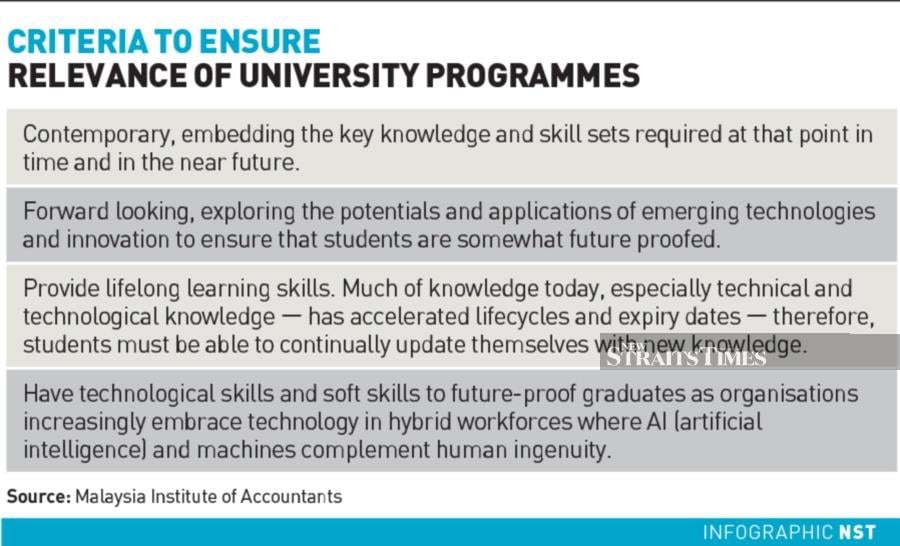
At UMT, programmes are being consolidated into lesser number of new programmes with more generic names according to the National Education Code (NEC), but with higher number of specialisation of study area that give students more options to choose from.
“The new programmes that we have in the pipeline are Bachelor of Mechanical Engineering Technology (Naval Architecture), Bachelor of Maritime Operation Management, Bachelor of Nanophysics, Bachelor of Data Analytics, Master in Tropical Biodiversity and Master in Tropical Marine Environment,” said Noor Azuan.
At UiTM, there are a number of new programmes in the pipeline ― Bachelor of Science (Hons) Eco-Technology and Bachelor of Creative Motion Design (Hons), and Diploma in Digital Audio Production, to name a few.
“The programmes are very much designed to be hybrid in nature, industry-based and relevant to the demands of IR4.0 and beyond,” said Mohamad Kamal.
UMK is set to offer two new programmes ― Bachelor of Accounting and a Bachelor of IT.
Noor Azizi said while there are similar courses, UMK’s differentiation this time is the designing and content of the courses are done together with close industry input and involvement and are meant to cater to real industry needs.
As part of the Malaysia Technical University Network (MTUN) which carries the Technical and Vocational Education Training (TVET) agenda, UniMAP is increasing the number of Bachelor of Technology (B.Tech) programmes.
The programmes in the pipeline are Bachelor of Technology in Automotive with Honours; Bachelor of Technology in Welding with Honours; Bachelor of Technology in Industrial Machining with Honours; and Bachelor of Technology in Building Construction with Honours.
“These programmes are crucial to facilitate students from vocational certification as opposed to Matriculation and STPM qualifications. As MoE has highlighted that UniMAP should offer programmes to cater for vocational and skilled qualification students, therefore, sufficient B.Tech programmes are crucial to be offered by all MTUN universities,” said R. Badlishah.
Universiti Teknikal Malaysia Melaka (UTeM) ― another MTUN university ― in a statement to Higher ED said new programmes that are in the pipeline include Bachelor of Technology in the Internet of Things (IOT), Telecommunication (focusing on 5G technology), Cloud Computing and E-Sports. The new programmes are jointly developed with industry leaders in the respective field.
INDUSTRY SAYS
To get insights into what the industry needs and demands, Nurmazilah said it is vital for universities to engage with industry and also professional and regulatory bodies for inputs, updates and direction.
As technology is a key disruptive force, it is vital that academics and universities embrace technology via engagement and advocacy.
“For example, in the context of accounting, while the basics of accounting such as manual double entries form the initial technical foundation, it is equally important that graduates be exposed to critical thinking and analysis as well as IT-related skills such as data analytics.
“Graduates would then be able to use these skills in the workplace to corroborate data and derive conclusions based on their organisation’s financial data and results.
“In addition, graduates must also be trained to understand and interpret accounting standards as they are principle based in nature.
“This requires good command of language as accountants have to be versatile on the application of accounting standards and not merely memorise the standards without proper understanding and thought processes,” she said.
Another example she gave relates to an organisation’s financial ratios.
“In the past, students were tasked with computing or crunching the numbers, rather than the interpretation of financial results which is a higher value-added skill.
“For graduates to be relevant in a world inundated with data which can be crunched by machines, they have to be trained to understand and interpret the results using tools such as analytics.
“This will enable them to provide the necessary value-added analysis and advisory in their organisations, making them relevant and indispensable,” she said.
Ganesh Kumar Bangah, chairman of the National Tech Association of Malaysia, said the main challenge that the IT industry often faces is not being able to find a candidate who fits into the technical roles they look for.
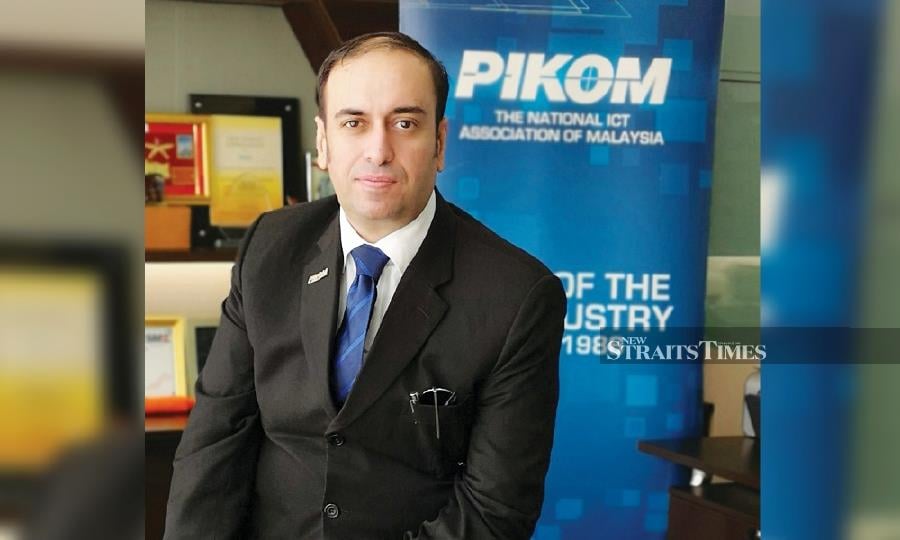
National Tech Association of Malaysia chairman Ganesh Kumar Bangah.
“There is often a mismatch between what we need and what the public university produces in their graduates. Their learning syllabus does not fit the requirements of today or tomorrow. This leads to the industry having to source for talents from private universities that have adopted a more current or up-to-date programmes for students,” he said.
One of the immediate areas that can be addressed is for public universities to take part in industry projects, and include representatives of the industry to co-teach the students. Universities can also opt to partner MNCs or any of the tech companies like some private colleges are already doing.
“While we understand the constraints of universities on policies etc, these policies need to change to accommodate the needs of today’s demands. Even the government is now moving into Industry Revolution 4.0 (IR4.0), the graduates will need to prepare themselves well.
“They can only do this if they get the right programmes, skills and training from the universities to become employable. Not only should students be academically ready but their social skills should also be improved, which covers their ability to speak and converse with people, be socially-inclined and can converse confidentially on various topics, too,” he concluded.
Source: https://www2.nst.com.my/education